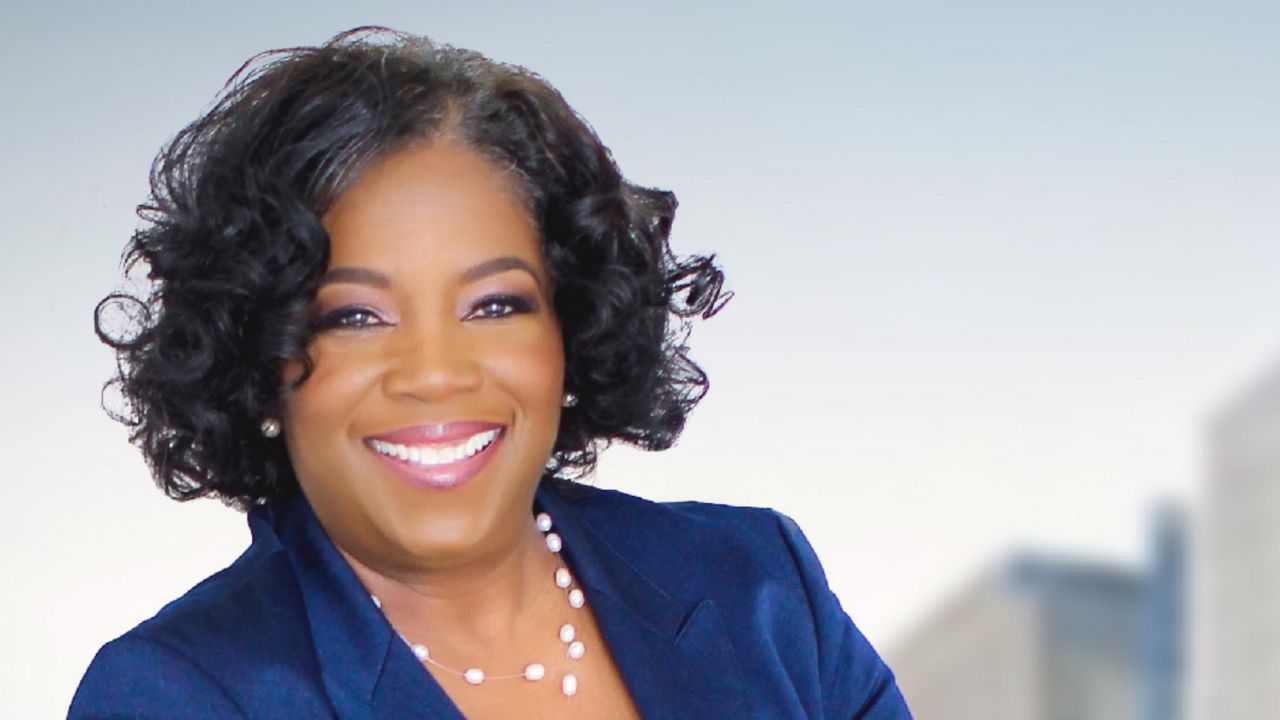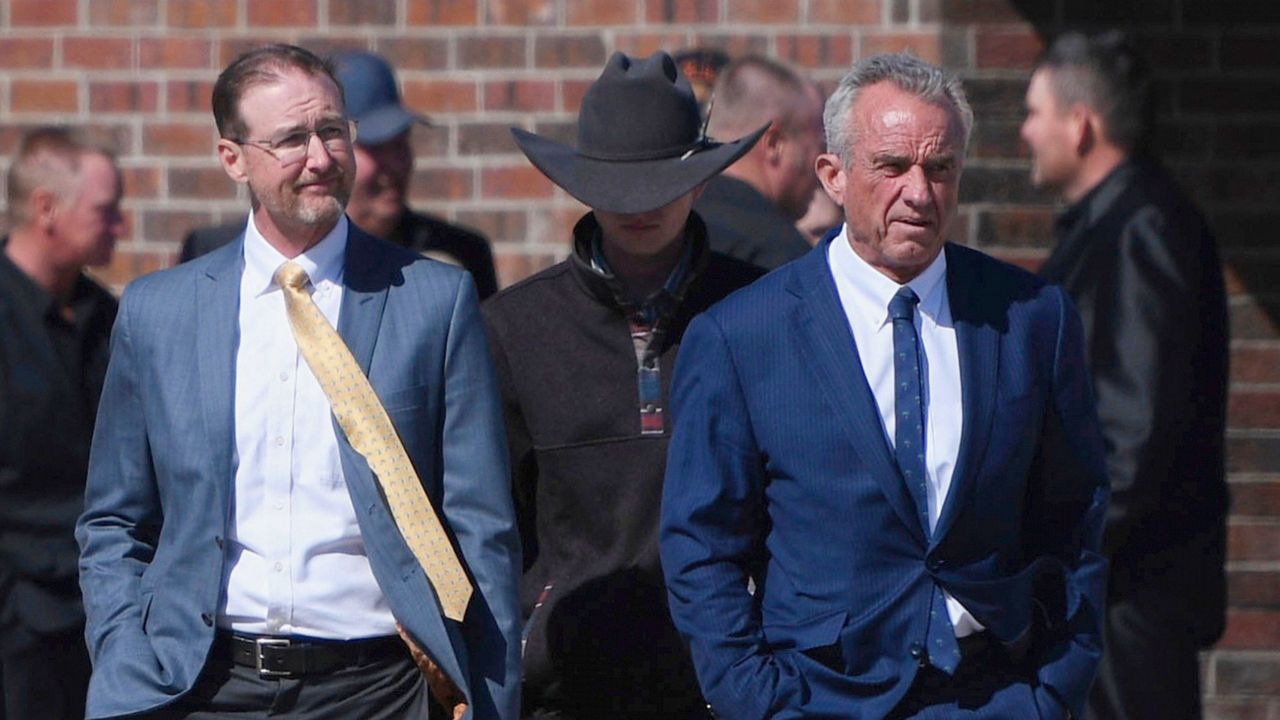TEXAS — Deirdre Gilbert has set out to achieve what no Black woman has yet to do: hold the office of governor in the United States. In July, the native Houstonian announced her bid for governor, and now she’s in the race of her life, hoping to connect with Texans.
“We have become victims of this legislation whether it’s the grid or health care or abortion or whatever this is they’re spewing out,” Gilbert said. “We are the ones that are being affected and we need change. And I didn’t think that change was going to get done by anyone else and nobody wanted to stand up, so I was like ‘well, here I am.’”
Gilbert graduated from Prairie View A&M University with a Bachelor of Science degree in Political Science and Mass Communication. She also earned her Master of Arts in Educational Administration from her alma mater.
In 1998, Gilbert’s life changed with the birth of her daughter, Jocelyn, who was born with special needs. Gilbert was forced to leave her job to take care of her.
Becoming a substitute teacher afforded her the chance to care for Jocelyn while still providing for their family. That decision led to a career as a teacher for nearly 30 years, serving students in the Houston, Aldine and Fort Bend school districts. Gilbert also spent her time working on behalf of her colleagues as a Houston Independent School District teacher’s union representative.
“While I was teaching school, I always fought for rights,” Gilbert said. “I was a union representative and always fighting for teachers' rights and fighting for somebody’s rights. But, I knew that my life was a little bit more than those four walls although I did not know what it would be until I came across a narcissistic principal and that drove me out.”
After leaving teaching, Gilbert started her own small business with a janitorial maintenance service. Later on, she’d become a notary public. It was during this time that Jocelyn died due to what Gilbert called “medical malpractice.”
“After the death of my daughter, I started digging into court reform,” she said. “Once I started getting into that, I started seeing some laws and bills and all kinds of things that were just not favorable for the least of us. I was disturbed about what I was seeing, the kind of attention it was getting and not being able to speak to any of my political leaders who were just not interested or claimed they couldn’t do anything basically about anything. So, that started my wheels rolling.”
Gilbert said that since she couldn’t find anyone to speak up for her rights and the rights of others, she’d be the one to do it. So, right in her community, she partnered with nonprofits and other local activists to teach people about how to protect themselves from “discriminatory practices.”
“Somebody [had] to start standing up, somebody [had] to start speaking out about the laws that were being passed that were not conducive to minorities specifically and then just the people,” she said.
Compared to some of the other candidates running for governor, Gilbert’s background is not rooted in politics. However, she threw her hat in the ring for Justice of the Peace in Precinct Two serving Fort Bend County. It was a decision she made after falling victim to “unscrupulous debt collection.” In an effort to fight the company suing her, she appeared in court.
“During the court session, the judge told me to ‘shut up’,” said Gilbert. “I had never experienced anything like that.”
It was in those moments that Gilbert’s outlook on those in positions of power changed.
“The day I left, I went home and told my husband ‘I’m going to run for his office’ and I did,” she said. “Now, I didn’t win. But, I gave him a run for his money and they knew that I wasn’t playing and I was able to help some other people who were also having that same issue.”
Gilbert, who currently lives in Missouri City, admits her announcement has been met with challenges and even disdain from those from which she thought she’d garner support.
“I’ve been suppressed,” she said. “I’ve been pushed out and, again, not embraced by the party. But, I intend to run anyway regardless of whether or not I have that support, because now I know that I wasn’t the first to have traveled this journey and I would think that after almost 50 years when Shirley Chisholm ran for president that these types of behaviors would have ceased. But, we’re still here — we’re still being marginalized and we’re still thought of as unviable candidates.”
Gilbert mentioned that, on at least two occasions, most recently while on a trip to San Antonio, she was approached by a member of the Democratic Party who suggested she drop out of the race. When asked if she felt like her non-existent experience played a role in her lack of support, Gilbert mentioned Rep. Cori Bush’s rise to political stardom without on-the-job experience. Bush, a registered nurse, defeated longtime incumbent William Lacy, D-Mo., back in 2020 and has announced her campaign for reelection.
“I don’t know of anybody who got a job and went in with all of the answers,” Gilbert said. “When we first got on our job, we learned on the job.”
But, experience or not, Gilbert believes she can do the job.
“I may not have the political prowess like everybody else has, but I’ve been around politics long enough to understand how it works and I possibly can probably tell you how government works in Austin better than some people,” she said.
From lack of visibility to minimal donations, Gilbert said what she’s currently experiencing isn’t exclusive to her campaign. After talking with other Black women running for governor in their respective states, she found out she was not alone.
“The conversations we’re having are all the same,” she said. “The party itself is not embracing us. The party itself has never actually embraced the Black female ever and these were things that I did not know when I first started out in July. These were things I stumbled upon, because I started seeing how nobody was talking about my run and I didn’t see my face on television.”
To date, six Black women across the U.S. have announced their plans to run for governor next year. In addition to Gilbert, Oklahoma’s former state Sen. Connie Johnson, South Carolina’s state Sen. Mia McLeod, Iowa business owner Deidre DeJear, New York Attorney General Tish James and Harvard University professor Danielle Allen, of Massachusetts, intend to run.
“This is not just a fame and fortune thing, but this is really something I believe that God has put me on the road to do,” Gilbert said. “Now, I don’t know at the end of that road whether if I’m going to win or not. But, I do know that the road that I’m running and I believe that the road the other women are running as well, that there is a purpose [and] that we all have something in common… Maybe it is yes, we are Black females. But, I think we know, too, that we are capable of doing a job that they say we are incapable of doing.”
In a recent report published by Higher Heights, known for backing Black women candidates, research shows the struggles of winning offices on the local, state and national level for Black women, despite representing one of the country’s highest voting rates and the Democratic Party’s most loyal constituency.
No Black women currently serve in the U.S. Senate and it wasn’t until 2018 that a Black woman, Stacey Abrams, D-Ga., became the majority-party nominee for governor. Even though Black women represent 7.8% of the population, they hold less than 5% of positions elected in the roles of state legislators, Congress and statewide executive officers, according to the report. However, in 2021, Black women saw a record-setting amount of representation in the state legislature.
“It’s going to be the breaking of glass,” said Gilbert describing the moment a Black woman is elected governor. “It’s breaking that glass ceiling, so that we can all say one day, ‘you know what, we finally after Martin Luther King, Jr. and all of them just marched, we finally made some progress. I really believe in my heart that there are more people just like it was when Martin Luther King, Jr. was out there and just like it was when [former President Barack] Obama ran for office, there are more people for you than against you. We just got to get out there and let them see me and I promise you if they see me, they’re probably going to say ‘I’m going to vote for that lady, because I think it’s time.’”
If elected, Gilbert says her first concern would be health care for every Texan and a quality education for students of all backgrounds. Reflecting back to her days as an educator and someone who saw firsthand how important quality health care is to families based on her experience, she believes she can relate to most.
“One of the things that I say that I have that nobody else has is I have been a part of the real life situations and when I say that I’m talking about health care or whether it’s education,” Gilbert said. “I’ve worked with veterans. I’ve had to stand in line and get welfare after I lost my job to take care of my daughter. I was a single parent at the time and understand parents and people who don’t have the income to do what they need to do to take care of their families."
(Correction: A previous version of this story innacurately stated no Black women currently served in Congress, it has been updated, Nov. 16, 2021)










